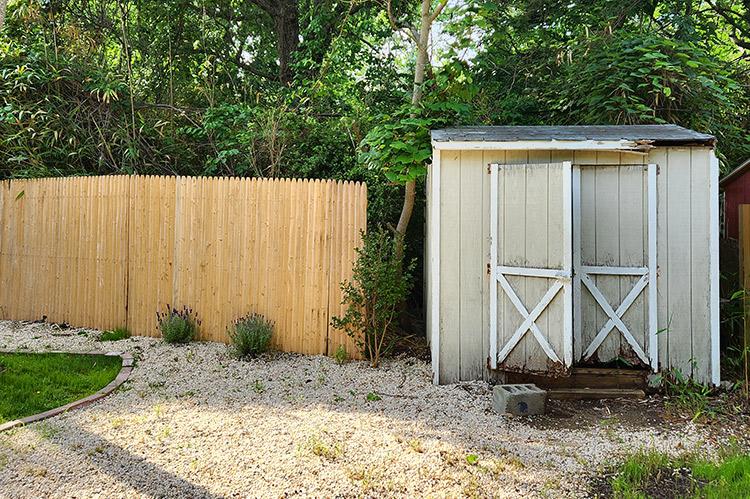“The irresistible force meets the immovable object.”
— Gorilla Monsoon, professional wrestler
My father died several years back, and in the process of moving on without him, we had to move many things. But some things took more time to move than others, including a riding lawn mower that no longer rode.
The mower had been taking up space in a weathered and worn shed on our family’s property in Wainscott. Like the shed, this mechanized monster had seen better days: It was immobile, the chassis rusted, the engine ruined, its four deflated tires sunken through the rotted and splintered plywood floor. When it had been operational, it was my father who mostly operated it, dutifully cutting the lawn during the summer months. But its neglect and demise into a sedentary state coincided with my father’s failing health and eventual passing.
And so the mower sat, for two grass-growing seasons, like an artifact in a forgotten museum. During that period, I did my best to care for the lawn when I visited, using a small, battery-charged push mower that sounded like an electric razor grinding through a rough beard. A few times, I tried to remove the rider and perhaps have it fixed, but it wouldn’t budge no matter my exertions, and I shrugged off its permanence as permanent.
Until I decided otherwise. Our family finally came to the conclusion we needed a new shed, or we needed to repair the existing one. Either way, we had to get rid of the rider first. With this decision made, the rest was easy: I hired a local handyman who took one look at the situation, secured to the mower a thick rope, and, using strength, guile, and leverage, yanked it out into daylight. With more muscle and mindwork, it was rolled up ramps to the back of a truck, and off it went to the town dump.
Immediately, sans mower, the shed looked different: It was no longer crowded or cluttered. Revealed were walls that needed only a bit of patching, a floorboard that could be replaced, a good and ample space that with a few repairs would serve our purposes well. In sum: Where once we saw an obstacle, we now envisioned opportunity.
And I saw an opening for introspection: Why did I wait so long to have the mower removed? What was the reason behind my indecisiveness, my inertia? For help, I asked Jason Kurtz, a leading psychotherapist in New York City and an expert on human behavior, for his take on the matter. He opined:
“What occurs to me immediately is how adaptable we are, and how that can be both a great strength and a weakness. It’s a strength because there are a great many things in life we simply have to accommodate in order to live. As children, we have to adapt to our parents’ rules. Ideally, our parents’ rules are to help us live, but often they are simply obstacles we have to endure and live with. Adapting, growing accustomed to these rules, is helpful because rather than getting frustrated each and every time we have to obey a rule we don’t like or don’t believe in, we simply get used to accommodating it and over time we can even forget that it’s something we maneuver around.”
“The downside is that we grow so accustomed to accommodating the obstacle that we miss opportunities to change or improve the situation. We see this a lot in therapy. Children learn not to express certain feelings, or try certain activities, which were prohibited by their parents. As adults, they no longer have these prohibitions, but continue to live according to their parents’ rules. Part of what we do as therapists is question, why do you avoid this feeling? Why don’t you try to talk to your boss? Why do you always date the same kind of girl? People have grown so accustomed to a life where they can’t have something, or have to avoid something, that they don’t even consciously know that they are doing it.”
Jason’s explanation did not address my situation with the lawn mower directly, but still it hit the mark. When I read what he wrote I teared up — the root of my issue was uncovered. The way I now see it, I had been so accustomed to the mower being in the shed, no matter its condition, I could not conceive of it not being there. My father had housed it there, and that’s where it always belonged. Moving it felt as if I were going against his wishes, his “rules.”
But also, deeper and even more meaningful, it was my reluctance to let go of my father: It was his mower. When I saw it, I saw him, cutting the grass, taking care of the property, of us.
Yet the thing about personal revelations is they often eradicate subconscious fears, opening up room in the mind for healthier thoughts and feelings. In fact, instead of feeling as if I had betrayed my father, I felt even closer to him. I had brought up real and intense emotions that, once let out, made me feel lighter, freer, and more connected to his memory. And while I will stick with my little electric mower for the time being, if desired, there will be more than enough space for a new rider.
The possibilities, for me and the shed, are endless.
John McCaffrey’s latest book is “Automatically Hip,” a collection of stories. He lives in Wainscott.

